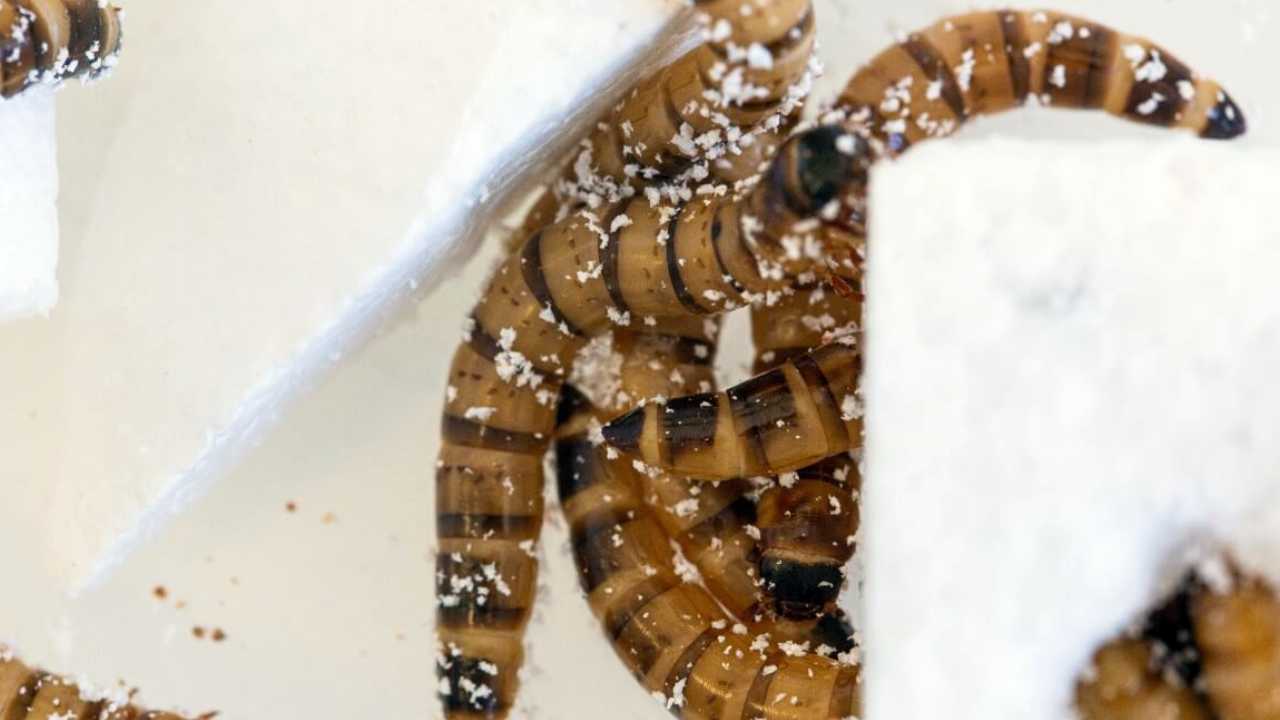Australian scientists have found that Zophobas morio, commonly known as superworm, can survive on a polystyrene diet.
Researchers say the larvae of plastic-smelling insects could help revolutionise the recycling of a species. They believe beetle larvae digest plastic through intestinal enzymes.
According to one of the study’s authors, this could be the key to progress in recycling.
“Superworms are like mini recycling plants, shredding the polystyrene with their mouths and then feeding it to the bacteria in their gut,” Dr Chris Rinke said.
The University of Queensland team fed three groups of superworms for three weeks with different diets. The batch that ate polystyrene even put on weight.
The team found that several enzymes in the stomach of the superworm have the ability to break down polystyrene and styrene, used in both take-out containers and other items such as insulation and auto parts.
However, the research is unlikely to lead to massive worm farms that double as recycling plants. Instead, the researchers hope to identify which enzyme is most effective, so that it can be reproduced on a large scale to be recycled.
According to a study published in Microbial Genomics, plastics will be mechanically crushed before being treated with enzymes.
“The breakdown products from this reaction can then be used by other microbes to create high-value compounds such as bioplastics,” Dr Rinke said.
Studies have already shown that certain types of beetle larvae can consume and digest polystyrene.
Internationally, other researchers have had success using bacteria and fungi to break down plastics. But there are questions about whether these technologies will ever be commercially viable.





























